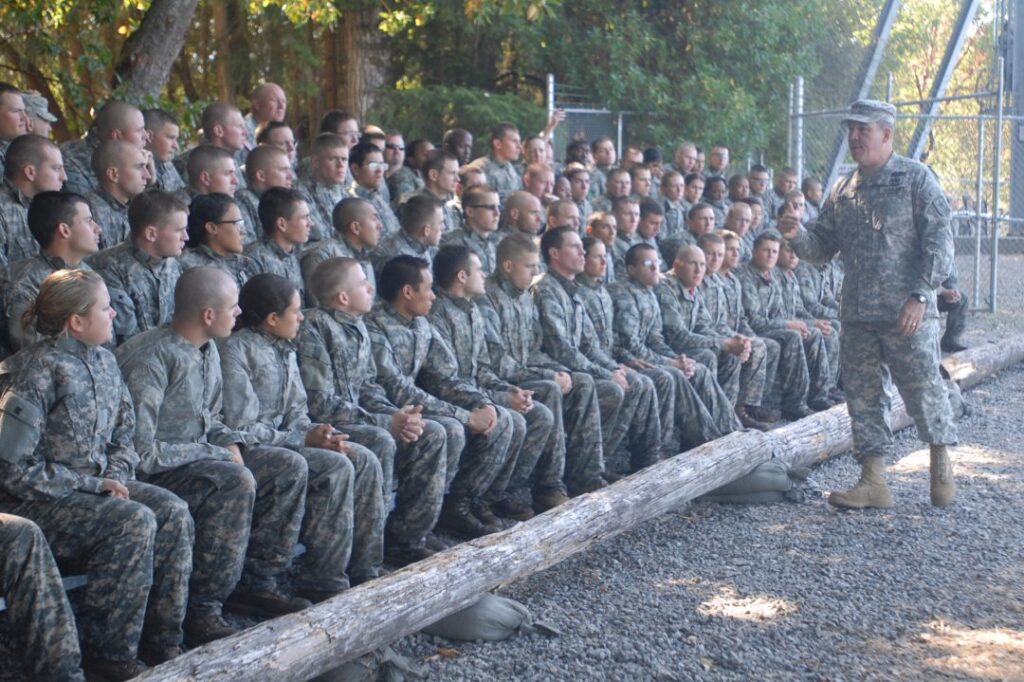As parents, it’s not always easy to talk to our kids about big decisions like joining the Army. It can be easy to let our anxieties or fears guide the conversation, leaving our sons and daughters to feel as though we aren’t really listening to them. If you find yourself wondering how to broach this topic with your kids who are thinking about serving in the U.S. military, you aren’t alone.
That’s why the U.S. Army has released guidance for parents who want to talk to their kids about joining the Army; not just to help parents understand what the Army offers as you might expect, but also to help us really engage with our children about more than the decision to serve, but about what parts of their lives are leading toward that decision. As parents, we have to talk with our kids about the Army, not just at them.
When you’re through, you may support their decision or you may not, but what’s most important is that your child knows you love them and care about them, and you know that your child made their choice with the benefit of your perspective.
You can read the Army’s full list of suggestions here, but we’ll include some of the most important elements below.
The Army guide for parents to talk to their kids about service

Step 1: Take a step back
It’s a good idea to take some time to process your thoughts and feelings about your daughter or son
joining the Army. This will allow you to keep an open mind and focus on the best decision for them.
Step 2: Learn about what the Army has to offer
Here’s a non-exhaustive list of things the U.S. Army has to offer your child, broken up into three categories:
Professional Development
- The Army offers career opportunities in a wide range of areas — with over 150 jobs in law enforcement, engineering, medicine, law, arts & media, technology and more.
- Soldiers participate in a variety of leadership training courses and get expert on-the-job training, putting them on the fast track to success both in Army careers and related civilian careers.
- Deployment is an opportunity to broaden one’s horizons by going overseas. A common misperception is that deployment always means combat, when, in fact, units are often deployed to noncombat regions. It is also important to note not all Soldiers get deployed.
Education Benefits
- The Army provides a well-rounded education beyond the traditional college diploma —including leadership training and other experiences that help Soldiers find career opportunities others don’t get.
- There are various scholarships, grants and education benefits the Army offers Soldiers to help them pay for a college education or pay off existing student loans.
- Soldiers participating in the Education Career Stabilization program are able to attend college and earn their degree without the risk of deployment.
Benefits
- Soldiers enjoy a dynamic lifestyle that affords them the time to pursue hobbies and spend time with their families, while continually strengthening themselves through ongoing training.
- Soldiers and their families get comprehensive health care coverage that comes at little or no cost.
- Soldiers on active duty receive 30 days of vacation along with weekends, national holidays and unlimited sick days.
- The Army provides low-cost life insurance regardless of a Soldier’s age.
- The Army offers Soldiers, families and retirees a strong network of support and recreational services that enhance lives, build resiliency and promote a sense of balance.
Step 3: Talk to other parents who’ve been there
It might help you better understand the process of joining the Army if you’ve spoken to other parents who have also had their sons or daughters head off to serve. The Army provides stories from parents in that very situation here.
Step 4: Ask honest questions, get honest answers
Here’s a list of questions the Army recommends you ask to keep the conversation moving while you get substantive answers:
- What do you hope to get out of the Army?
- What is the main reason you are thinking of joining?
- What are your long-term goals and how will the Army help you achieve them?
- Have you thought about what you want to do in the Army?
- What talents do you hope to strengthen in the Army?
- Have you thought about going to college before or after the Army?
- What would you like to be in the Army Reserve or on active duty?
Step 5: Talk to the recruiter yourself
The Army also recommends that you go to the recruiter to ask some of your own questions, that way you can make sure you’re well informed and well prepared to talk it out with your son or daughter.





